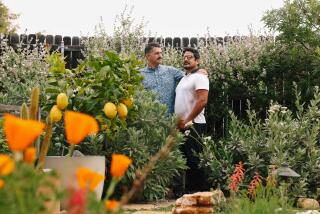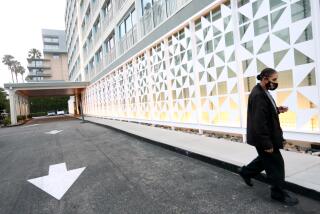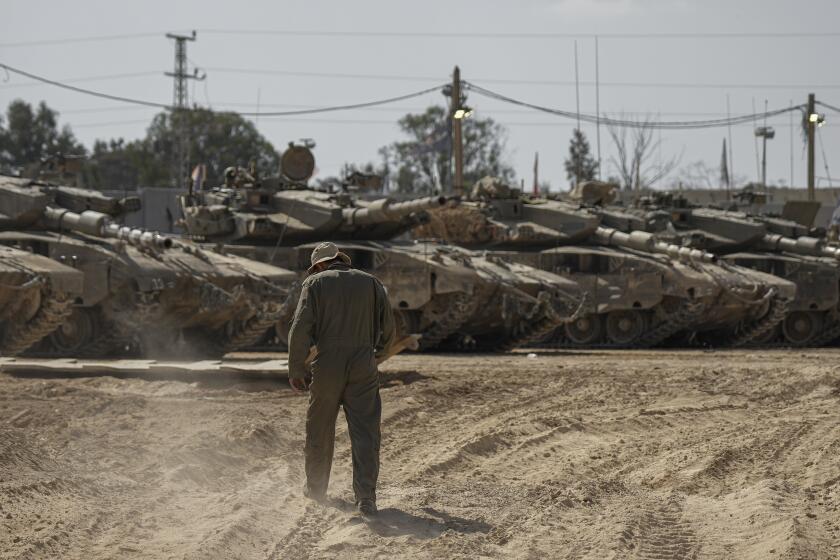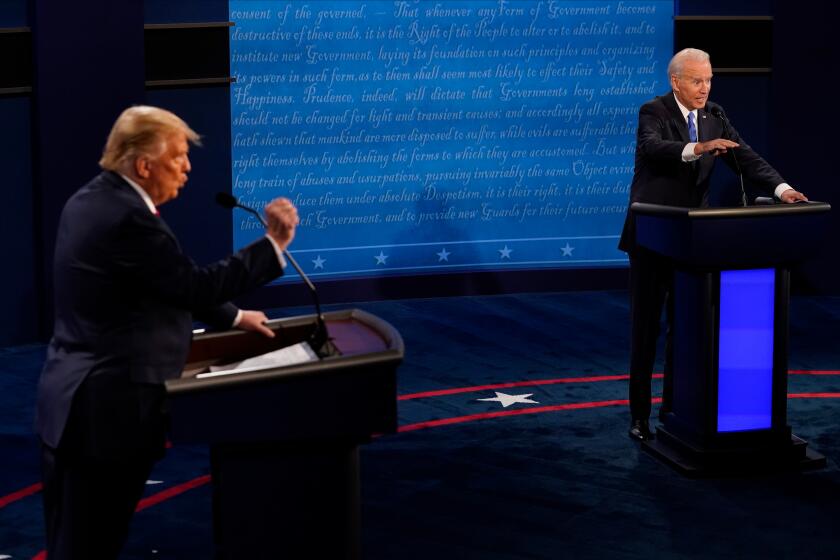A South-Central garden spot again?
Once there was a farm in South Los Angeles that sprouted among warehouses and railroad tracks. In the shadow of downtown skyscrapers, avocado trees and beans and tomatillos took root and gave 350 families a bountiful harvest and a gathering place. But the plot of land at 41st and Alameda — estimated at 14 acres — was not the farmers’ to keep. Allowed to garden there by the city after it took possession under eminent domain, the land was eventually sold back to a previous owner. The farmers could leave — or buy the property from him for about $16 million.
The 2 1/2-year battle that erupted in 2006 played out like an opera. The South Central Farmers, as the gardeners named themselves, felt betrayed by city politicians. The property owner, Ralph Horowitz, believed — rightly — that he was being unfairly vilified for simply trying to protect his investment. Despite a promise of millions from the Annenberg Foundation, a deal to buy the property and keep the farm going fell through, giving way to the ugly sight of bulldozers plowing crops under. But life went on. Some farmers moved farther south to land that L.A. City Councilwoman Jan Perry helped them find. Others — who kept the South Central Farmers name — moved to land near Bakersfield, where they continue to grow produce that they sell at farmers’ markets and in several Whole Foods stores. And some quit farming altogether.
Photos: Remembering the fight of the South Central Farmers
Now, nearly five years later, the property that ignited so much drama sits vacant, awash in wild grasses. But it is for sale, and the South Central Farmers want it back.
Nobody is standing in their way. But nobody is helping them either. Horowitz is asking about $18 million for the property. Perry, the City Council member in whose district the parcel lies, says she would like it to go to the buyer who would bring the greatest number of jobs to people in the immediate area.
Like Perry, we want to see the best use of this large parcel — a rare find — as well. And there’s no question that jobs are badly needed in the community. But is someone offering to create a lot of jobs there? As far as we know, in the tortured history of this piece of land over the last 25 years, the most productive use of it was the urban farm that lasted 14 years. No one wins with the land lying empty and fallow.
The South Central Farmers’ proposal should at least be heard out. Hardly diplomats, they have alienated a lot of people over the years. But they love the land, and they have a plan that may improve on the erstwhile farm. “The garden will be an educational and cultural center,” said Tezozomoc, their most vocal representative, who goes by a single name. He promises that it will be more community-oriented than it was, and that the original farmers will not take plots to garden but will open them to other city residents.
A nonprofit organization or foundation would have to finance the purchase and would essentially own the land. Whether the Annenberg Foundation would get involved again is unclear. The farmers would have to present their request to the foundation anew.
Horowitz, of course, has to act in his best business interest. This may all be moot if he closes an alternative deal on the land. (It’s been on the market for a year.)
Meanwhile, Perry — who is running for mayor — should at least meet with the farmers to hear their proposal and consider whether to advocate for them. She says she supports community gardens and has created two wetland areas in her district. That’s good. But this piece of land is like no other in her district — a sprawling, flat expanse. Many people were heartened by the presence of the urban farm amid the concrete. Perry herself, in a 2003 letter, hailed the garden as “a vibrant oasis.” If a deal with a foundation can be worked out, wouldn’t it be good to have something growing there again?
More to Read
A cure for the common opinion
Get thought-provoking perspectives with our weekly newsletter.
You may occasionally receive promotional content from the Los Angeles Times.






